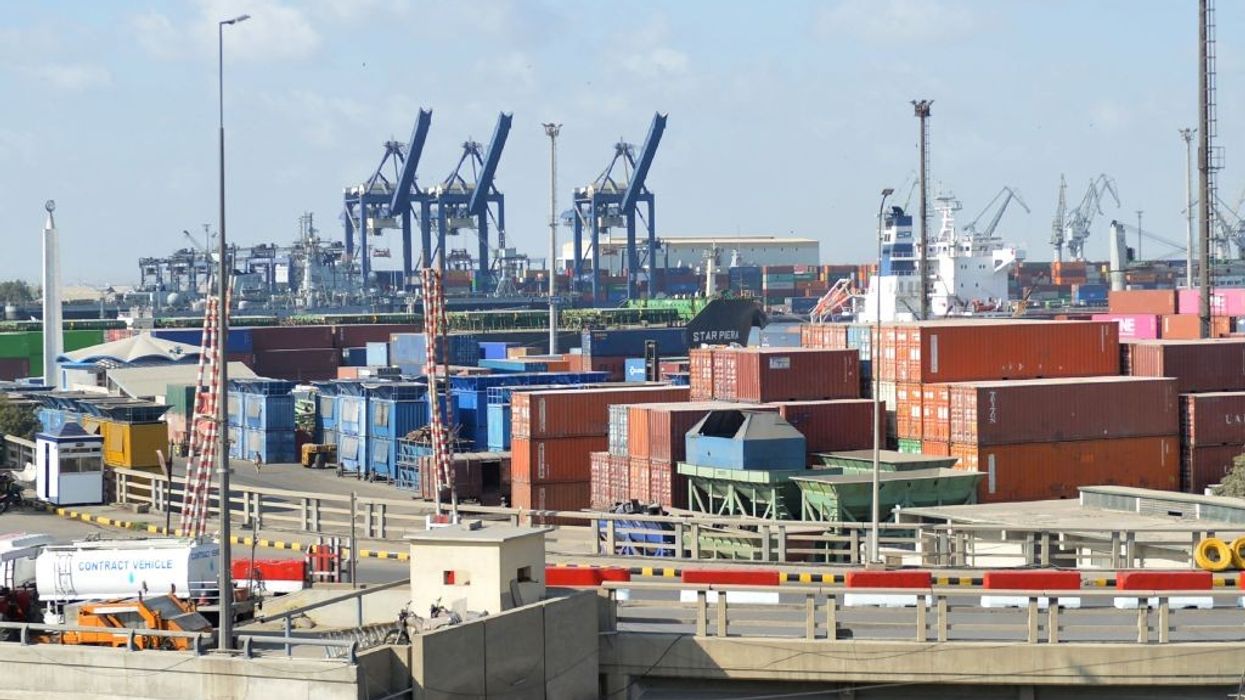The ship agents have forewarned the cash-strapped Pakistani government that all export cargoes could come to a halt as foreign shipping lines are considering stopping their services for the country after banks stopped remitting freight charges to them due to a lack of dollar availability, according to a media report on Saturday.
Apart from bordering countries, almost all the international logistics from Pakistan are catered by sea and any disruption could create serious issues for the country’s international trade, Pakistan Ship’s Agents Association (PSAA) chairman Abdul Rauf warned Finance Minister Ishaq Dar through a letter.
“If the international trade is stopped the economic situation will worsen,” the association warned, adding that the foreign shipping lines are already considering winding up their services in Pakistan due to reduced cargo volumes.
The PSAA chairman also wrote letters to State Bank of Pakistan (SBP) Governor Jameel Ahmed, Commerce Minister Syed Naveed Namar, and Maritime Affairs Minister Faisal Sabzwari, the Dawn newspaper reported.
Rauf requested the ministries and departments concerned to intervene to ensure continuity in Pakistan’s seaborne trade by allowing outward remittance of surplus freight amounts to respective foreign shipping lines forthwith.
“Due to discontinuation of outward remittance of surplus freight amounts to respective foreign shipping lines, was hampering Pakistan’s seaborne trade which is heavily dependent on foreign shipping lines,” the letter added.
However, the crisis relates to the export cargoes as all the outward trade from Pakistan is container-based, as there are no liquid or grain exports from the country.
The state-owned Pakistan National Shipping Company (PNSC) only handles imports of crude oil and other petroleum fuel through its 12 vessels.
The annual freight bill of Pakistan is around USD 5 billion, and foreign companies receive the charges in international currencies mainly the “greenback”.
The ship agents have pointed out that due to the current state of affairs, the shipping sector was already suffering due to economic ups and downs, and any further delays in remitting their legitimate dues will constrain Pakistan’s external trade.
However, talking to the newspaper, former PSAA chairman Muhammad Rajpar said that Pakistan was not close to an economic meltdown as yet, therefore the government still has time to seek a way out of the current crisis.
“We can always have innovative ideas to get out of difficult times, one of them is hedging of dollars and setting instalments for the payments to the shipping companies,” Rajpar said.
Pakistan’s foreign exchange reserves had dwindled rapidly to over $4 billion in recent weeks, creating fear the country may default and prompting the SBP to apply strict control over foreign payments.
Meanwhile, the Petroleum Division has warned the central bank that the stocks of petroleum products may dry up as banks are refusing to open and confirm Letters of Credit (LCs) for imports.
Like other sectors, the oil industry in Pakistan is facing hurdles to opening LCs owing to the US dollar shortage and restrictions put in place by the SBP, according to The Express Tribune.
(PTI)




